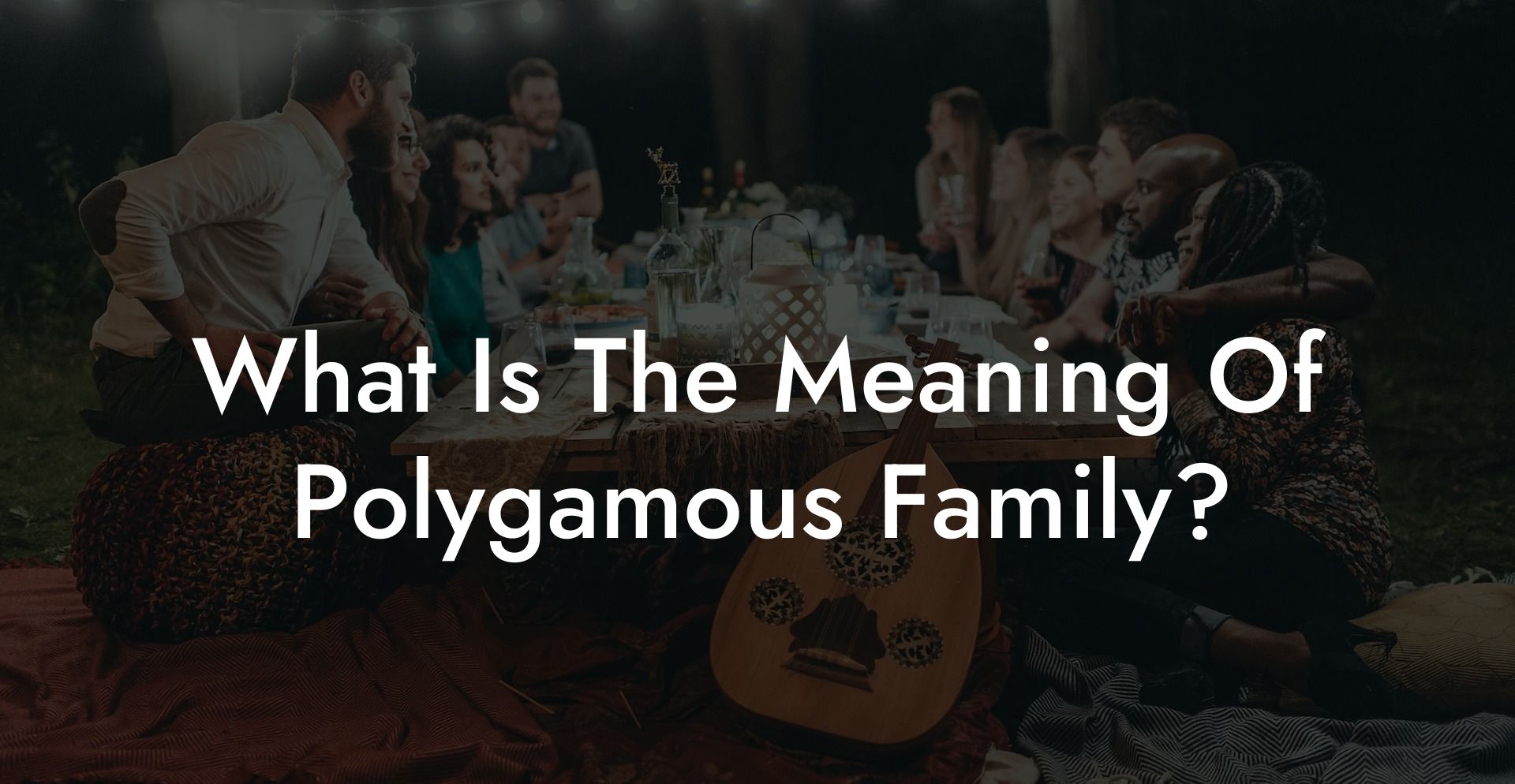Have you ever wondered what life would be like with multiple spouses or partners? The concept of a polygamous family might seem foreign or even taboo to some, but it is a lifestyle that has been practiced by various cultures throughout history and is still prevalent in modern society. In this article, we will dive into the meaning of a polygamous family, the different forms it takes, and how it operates in today's world. Finally, we will explore the benefits and challenges of such family structures. So, delve in with us and discover more about this fascinating aspect of human relationships. And if you find it intriguing, don't forget to share this post and check out our other guides on The Monogamy Experiment!
What Is The Meaning Of Polygamous Family Table of Contents
A polygamous family is a family structure where one individual has multiple spouses or partners. This practice happens in various cultures, and there are two main forms of polygamy: polygyny (one man with multiple wives) and polyandry (one woman with multiple husbands). There is also group marriage or polyamory, where several people, irrespective of gender, are all involved in intimate relationships with one another.
The most common form of polygamy worldwide is polygyny. It is practiced in various religious and cultural contexts, including Islam and traditional African societies. Polyandry, on the other hand, is rarer and occurs primarily among some tribal communities in the Himalayas. Lastly, polyamory is an emerging form of polygamous family in Western cultures driven by the desire for more open, fluid relationships.
Now that we have the basic definition covered, let's dive into the daily workings of polygamous families. Each family, regardless of its configuration, comes with unique dynamics, rules, and expectations. In a polygynous family, each wife usually has a separate dwelling and forms a direct relationship with the husband. In some cases, wives may develop a familial relationship with each other, but this is not always the case. The husband may also distribute resources like time, attention, and financial support based on the needs of each wife and her children, leading to intricate power dynamics.
In a polyandrous family, a woman may have several husbands with different roles in the family structure, depending on the specific culture and context. In some cases, husbands may share equal roles in supporting the family, while in others, the primary husband assumes more responsibilities. Anthropologists have linked this practice to improving economic stability by sharing the burden of providing for the family.
Polyamorous families are more fluid in their arrangements, with relationships often based on mutual consent, open communication, and clear boundaries. They can involve a variety of structures, including triads (three people romantically involved), quads (four individuals), and even more complex networks of relationships. The most important aspect of these relationships is honesty and open communication about each partner's wants and needs.
Polygamous families can offer various benefits, such as increased emotional and financial support, diverse perspectives, and shared responsibilities. However, they are not without their challenges. In some polygamous structures, power imbalances can lead to exploitation or favoritism, jealousy and competition among spouses or co-parents, and societal stigma and legal issues.
Understanding and embracing different types of relationships and family structures helps us appreciate the complexity and spectrum of human relationships. While polygamous families offer unique benefits and challenges, the same is true for monogamous families. Each arrangement suits different individuals based on their personal beliefs, values, and desires. So, what family structure do you resonate with the most?
If you've enjoyed this exploration of polygamous families, don't hesitate to share this post with your friends and loved ones. And while you're here, check out our other guides on The Monogamy Experiment to broaden your understanding of the intricacies of human relationships.













